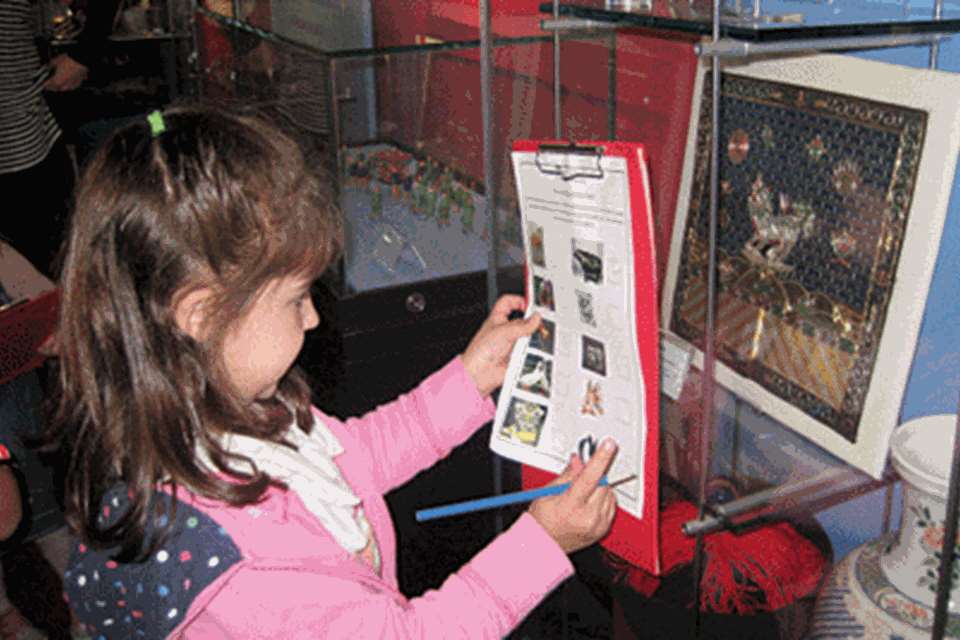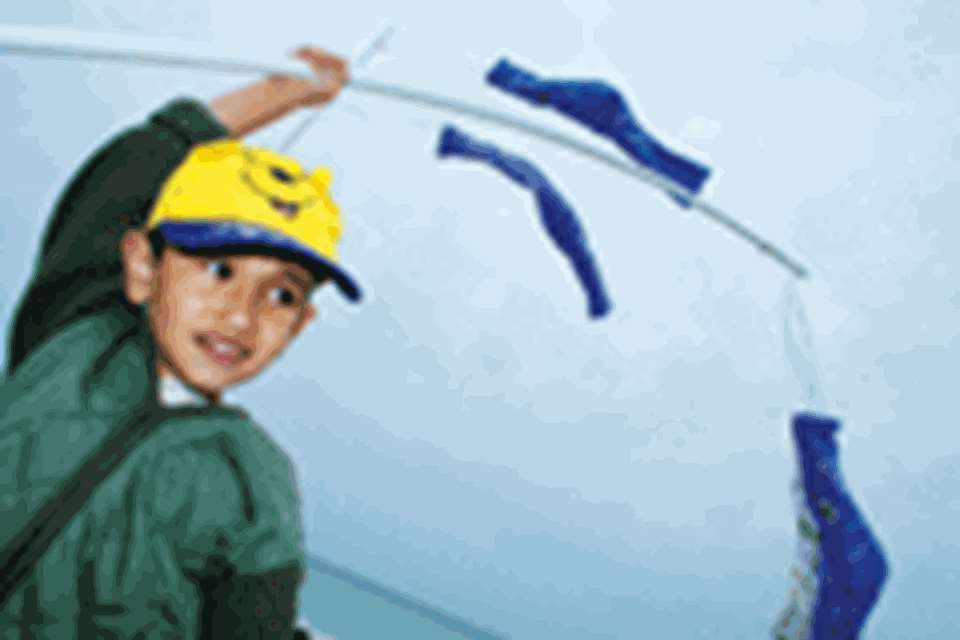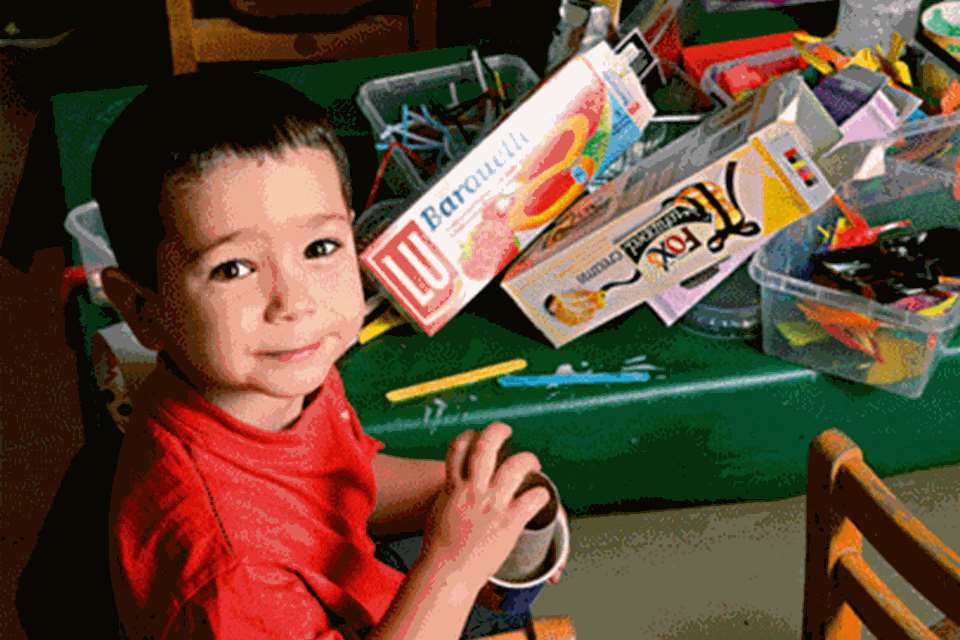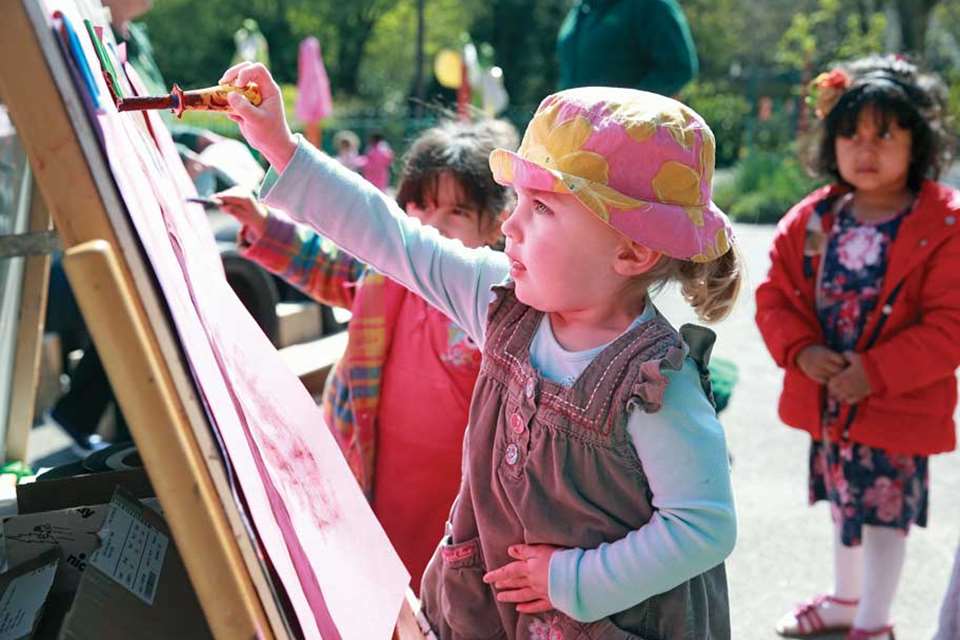Nursery Equipment: Creativity - Space and time
Ruth Thomson
Wednesday, May 20, 2015
In Scotland, creativity is now at the heart of early years education. Annette Rawstrone assesses its capacity to foster a love of learning.

Many of us have gone through an education system focused on results and outcomes, but this way of learning is being challenged in Scotland where active learning and creativity are at the heart of the Curriculum for Excellence.
Instead of using a goal-orientated approach, early years practitioners are enabling children to have freedom to explore their creativity in order to build a love of learning. Heather Armstrong, manager of the Creative Skills Programme at Starcatchers, which runs creative training with practitioners and students across Scotland, says that we need to trust that by allowing children to play, explore and use their bodies and voices, they will learn.
'For me, creativity is about children having a meaningful input into what they do, being allowed to have real power to affect what's happening,' she says. 'Creative action engages imagination and gives children a sense of impact. It goes far beyond the arts and covers every facet of education.'
She says that it is now recognised that there is an economic need for people to learn how to be flexible and have transferable skills because people no longer have one job for life. Benefits of creativity include children learning to use their imagination, sustain periods of concentration, problem solve and experiment, work collaboratively and gain confidence.
For true creativity, Ms Armstrong says that the emphasis needs to be on the actual process rather than the end product. 'The process is when children build the skills and learn about themselves,' she explains. 'If the focus is on the product, it is telling them that there is one way of doing something. It is setting a goal to aspire to and if you can't do that then there is less value.'
Alice Sharp, managing director of training company Experiential Play and shared-play product specialist Wonderbox, based in Glasgow, says all children have a built-in sense of curiosity. 'If they are allowed to be curious then they will investigate and discover things; through discovery children are thinking and learning,' she says. 'To be creative in maths, language, art or science we need to start with curiosity and we need to encourage curiosity rather than specific skills. If there's nothing in the environment to allow children to be curious then they're not going to be creative.'
Ms Sharp believes that it is essential to think about how the environment is set up because it needs to engage a child's curiosity, investigation and exploration. In turn, this will give time for practitioners to observe, scaffold and follow a child's learning. Importantly, children need to have the space and time to be creative.
The adult role is also key -think about what the child is doing, listen and respond to their actions. Ms Armstrong says, 'Staff need to engage creatively with the children, rather than just setting up and then standing back. They need to be role models and join in the play.'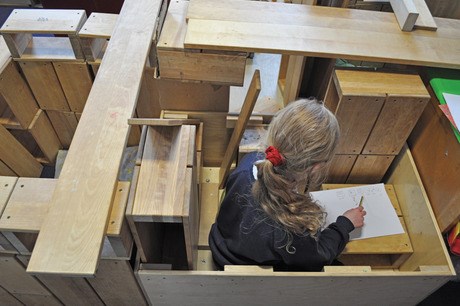
CREATIVITY IN ACTION
Luing Primary School, Isle of Luing, Argyll and Bute
The first thing head teacher Stephen Glen-Lee did when he moved to the island school seven years ago was to strip out the traditional desks and buy hollow wooden blocks that could be tables, chairs and have endless other possibilities.
 He believes that space is much more important than furniture. 'It is essential to have the room for expressive arts and exploration,' he says. He suggests buying tables with legs that can be removed, or otherwise with wheels, so they can be easily stored.
He believes that space is much more important than furniture. 'It is essential to have the room for expressive arts and exploration,' he says. He suggests buying tables with legs that can be removed, or otherwise with wheels, so they can be easily stored.
Eighteen children, aged from three to 12 years old, attend the school and often learn together in a family unit, with children being free to work creatively both inside and outdoors.
 'We need to have a creative environment where we can encourage and scaffold learning, to make the learning relevant to all,' he says. 'We can teach the whole curriculum by letting the children tap into their imaginations. We want to develop life learners rather than give them facts so that they can be memory banks.'
'We need to have a creative environment where we can encourage and scaffold learning, to make the learning relevant to all,' he says. 'We can teach the whole curriculum by letting the children tap into their imaginations. We want to develop life learners rather than give them facts so that they can be memory banks.'
When choosing resources, Mr Glen-Lee tries to gather objects that create awe and wonder, 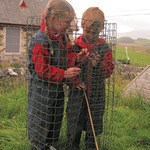 regarding charity shops as treasure troves for beads, bags, scarves and hats.
regarding charity shops as treasure troves for beads, bags, scarves and hats.
He believes that children develop empathy and resilience through craft and relaxation so all children learn how to sew, knit and play the ukulele. 'Unlike the recorder it is an achievable instrument, and one chord can sound superb so it gives children an element of success,' he explains.
'The children develop motor skills while they sew and knit, but they also relax and talk,' he adds. 'It gives them a voice and enables them to have confidence for when they move to high school. Then they can access anything.'
CREATIVE SKILLS TRAINING
Early years practitioners Sarah Laing, of Innerwick Primary School Nursery, and Chris Orr, of Hillend Children's Centre, both participated in the Starcatchers' Creative Skills Training Programme - and it has had a big impact on the way they work with children.
Innerwick Primary School Nursery, East Lothian
'The manner in which our children sing, dance and move with a puppet called Stripy would convince anyone of the benefits of creativity,' says Ms Laing. She made Stripy out of a glove and an egg box during the Starcatchers training and introduced him to the children at her setting. 'The children really engage with Stripy. He's very real to them,' says Ms Laing, who now sees herself as an assistant to exploration, providing support, open-ended resources and experiences.
The children started weekly 'Stripy time', creative movement sessions with the puppet, and then initiated a birthday party when a puppeteer visited the setting. They decided that Stripy was turning four, and everyone would wear stripes, eat stripy snacks and make puppet friends.
'The children worked together to plan the party in a mature way, almost like event managers,' says Ms Laing. 'They made and painted stripes and were incredibly engaged and happy from the planning through to the actual party.'
She can see that the children feel empowered by their creative experiences: 'These are very much their ideas, which is enabling and gives them self-belief. Their imaginations have taken off and they are even designing puppets at home.'
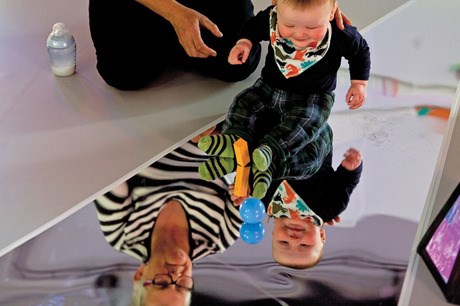
Hillend Children's Centre, Greenock, Inverclyde
'I've started to think about the environment more like a child,' says Mr Orr. 'When I set up an environment, I think what it'll look like for someone 75cm tall and try to provide open-ended experiences. I ask "What would interest me if I was four? What could I do with these resources?"'
For example, he arranged 10 empty Ikea cardboard boxes in piles with gaps for tunnels and left them for the children to explore. He is also a fan of coloured PVC electrical tape for creating stimulating maze-like environments by joining up furniture, or simply giving rolls to the children.
'They created things to go over and under, stuck materials together and decorated their environment,' he says. 'Children put tracks on the carpet for their cars and trains and asked if they could go on the walls and windows. I said, "Why not?" It excited them and opened up new possibilities.'
MORE INFORMATION
Curriculum for Excellence, www.educationscotland.gov.uk/learningandteaching/thecurriculum/whatiscurriculumforexcellence
Experiential Play, www.experientialplay.com
Starcatchers, www.starcatchers.org.uk
Wonderbox, www.wonderbox.co.uk.


